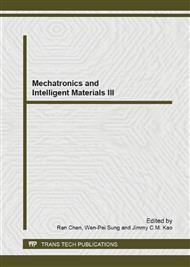p.2048
p.2053
p.2057
p.2063
p.2067
p.2071
p.2075
p.2079
p.2083
The Asymmetry-Center Probabilistic Fuzzy Set for Freight Turnover Forecasting in Changsha City
Abstract:
A freight turnover forecasting is an important issue of the logistics plans of a city. The probabilistic fuzzy set (PFS) is designed for handling the uncertainties in both stochastic and nonstochastic nature. Because of the asymmetric probabilistic fuzzy sets variability and malleability is higher than symmetric one. In this paper, an asymmetry-center probabilistic fuzzy set is proposed by randomly varying the center of asymmetric Gaussian membership function. Then the PFLS with this asymmetric probabilistic fuzzy set is constructed and applied to a freight turnover forecasting. The results show that the asymmetry-center probabilistic fuzzy set improves the accuracy of such system. This work will broaden the application of the probabilistic fuzzy set.
Info:
Periodical:
Pages:
2067-2070
Citation:
Online since:
June 2013
Authors:
Price:
Сopyright:
© 2013 Trans Tech Publications Ltd. All Rights Reserved
Share:
Citation:


